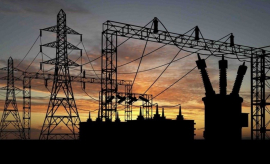
Load shedding has been downgraded from Stage 4 to Stage 3 this morning as Eskom’s emergency power reserves continue to recover from several breakdowns and trips at its power stations.
The power utility has been battling to keep the lights on with several factors – including an incident in Zambia which affected Southern Africa’s entire power system – adding to strain on the power system.
“The emergency generation reserves have shown significant progress over the past two days. Therefore load shedding will be reduced to Stage 3 from Wednesday…to Friday. Thereafter, Stage 2 load shedding will continue as previously communicated until 5am on Saturday. It is necessary to continue with load shedding in order to fully replenish the emergency generation reserves,” the power utility said.
Briefing the media on Tuesday evening, Eskom CEO Andre de Ruyter said there was context to the current situation facing the embattled power utility.
“For the past 24 months, Eskom management have consistently signaled that there is a lack of capacity in the country [and] that we need between 4000 to 6000 megawatts of capacity to be added to the grid as soon as possible.
“We are also faced with some challenges around procurement. In particular there are challenges around opportunities to expedite and accelerate the procurement of spares and of engaging with original equipment manufacturers in order to make sure that we can maintain our equipment and the spares that are required,” he said.
De Ruyter added that the situation is “exacerbated by a lack of predictable funding” which has left the power utility in a constrained financial position.
“[Eskom] finds itself in a very difficult situation to have the necessary funding available to enter into contracts. This requires us to start planning 24 months in advance for commitments and in the absence of predictable liquidity being made available, that presents a challenge for us,” he said.
Adding to the strain on the system, de Ruyter said, are municipalities which do not implement load shedding as required.
“During Stage 2 load shedding in particular, we saw a number of municipalities either not abiding by their obligations to implement load shedding or implementing it only [less than] what their commitment should be.
“This has put us in a position where instead of the roughly 2000MW we would expect from load shedding Stage 2…that we had to deepen our load shedding to Stage 4,” he explained.
The CEO said the power utility is in discussions with the erring municipalities to rectify the situation and the cooperation has improved since Stage 4 load shedding was implemented.
Addressing calls for him to be axed, de Ruyter said the power utility requires continuity in leadership and that he would not be stepping down.
"We serve at the pleasure and discretion of the board...and of course if [it] finds it appropriate for me to resign then that is their decision to make. We have had no discussions in this regard so far and I do not intend to resign. Given the current circumstances, it is probably more important to have continuity of management rather than to fall back into the trap that Eskom has been in over the past ten years when we had 11 different chief executives. That lack of continuity clearly has significantly contributed to instability within the organisatoin.
"I understand that there are frustrations that we are not achieving our objectives as quickly as we would have liked to but these frustrations will not be resolved...by changing [management] at this point in time". – SAnews.gov.za


